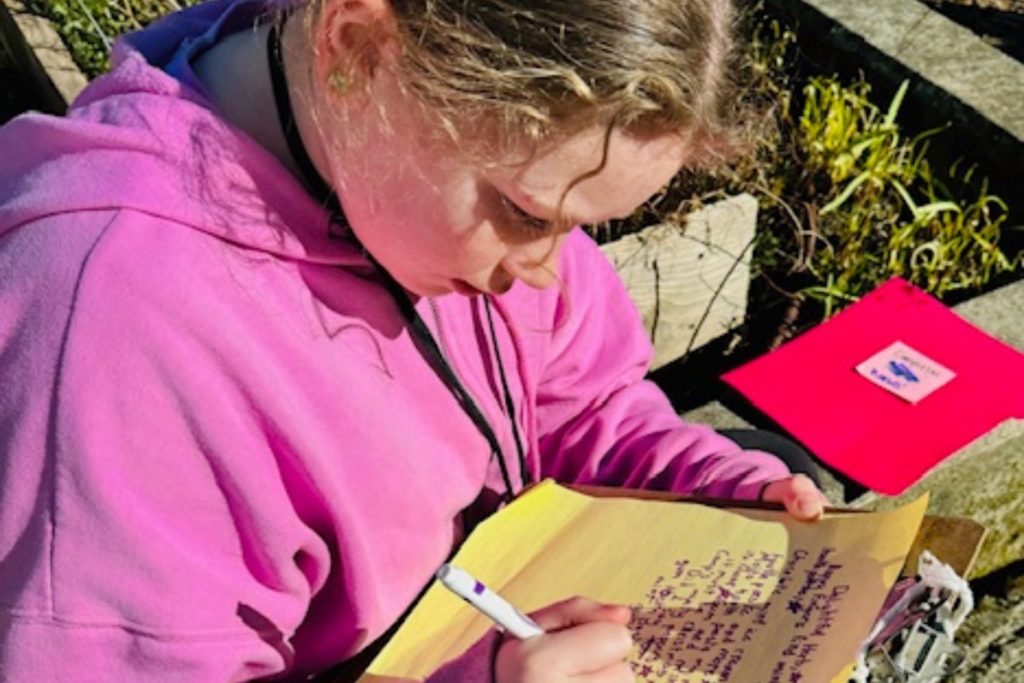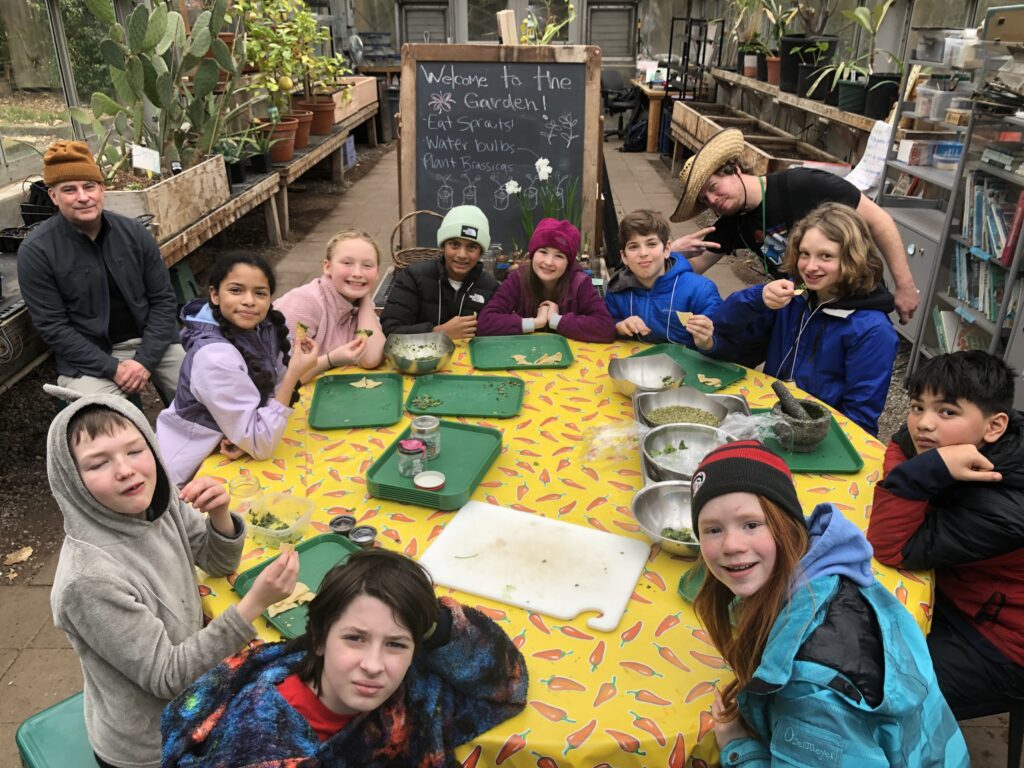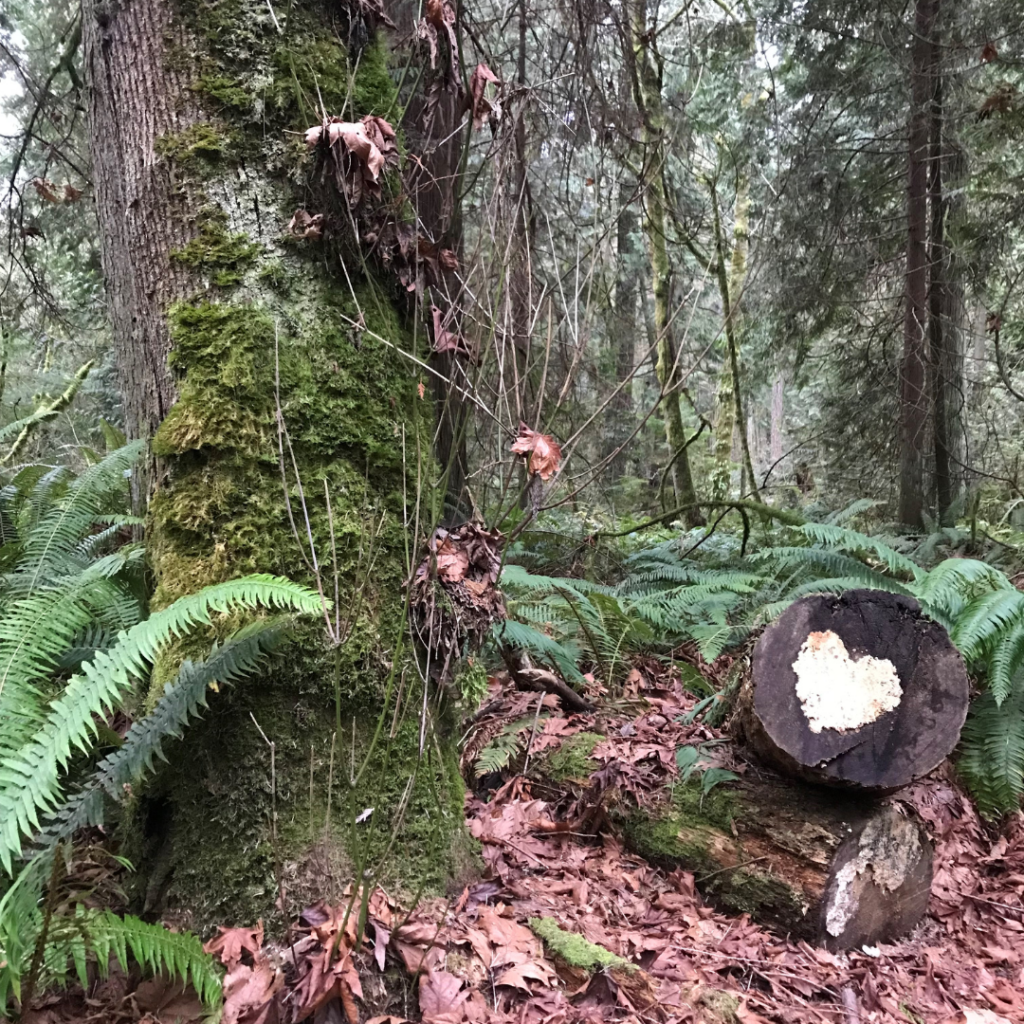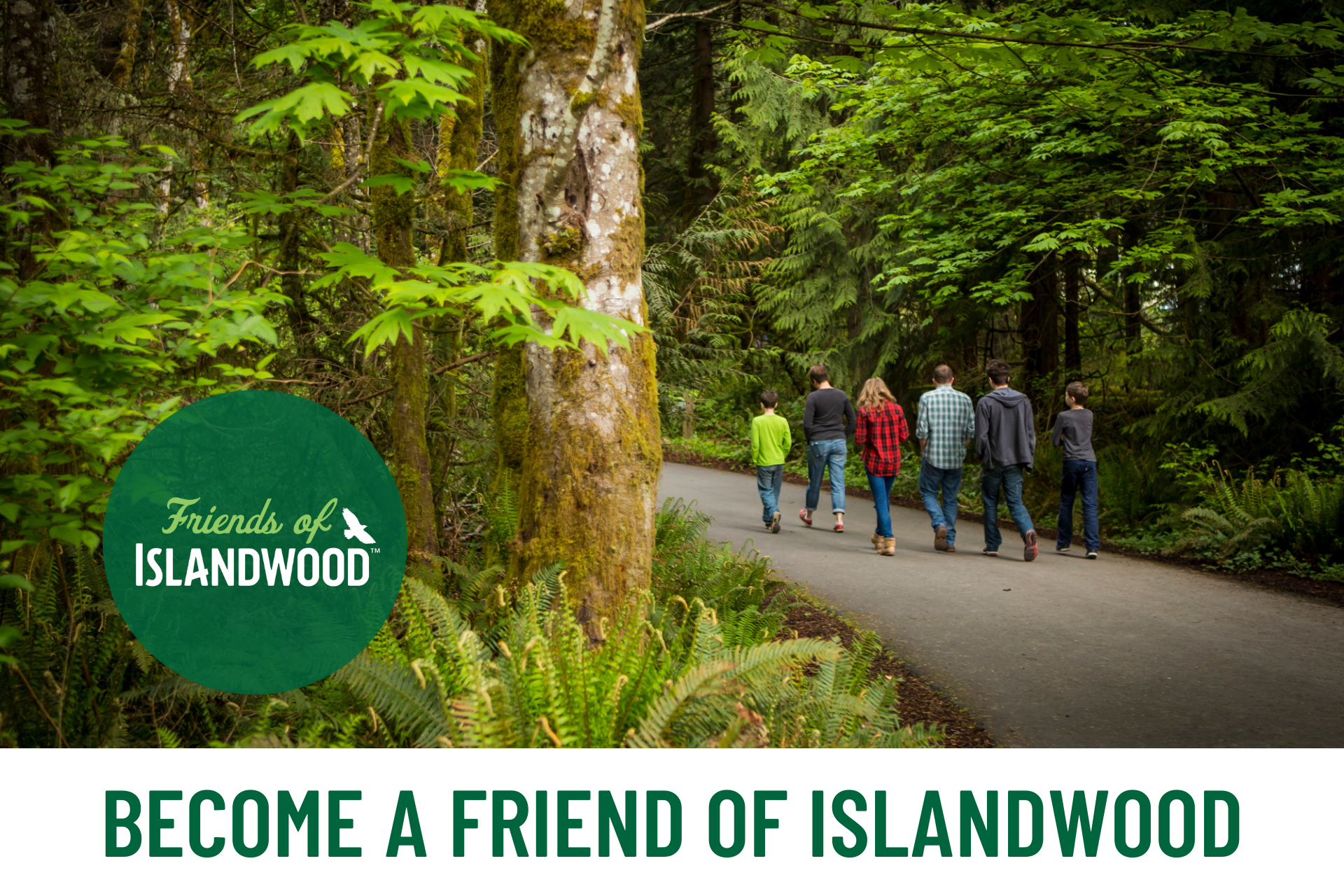2018 – 2019 SOP Annual Report
SCHOOL OVERNIGHT PROGRAM ANNUAL REPORT
2018-19 School Year
Thank you all for another lovely year of feedback from chaperone surveys, teacher surveys, teacher debrief, and instructor evaluation forms. We have looked through everything you have provided and created the second School Overnight Program Annual Report. We have crafted this document to work to close the feedback loop, increase transparency, and deepen relationships with our school communities.
If you have any questions, don’t hesitate to reach out. Thank you for your support of IslandWood, and we look forward to working together again this year!
Sincerely,
The School Overnight Program Team
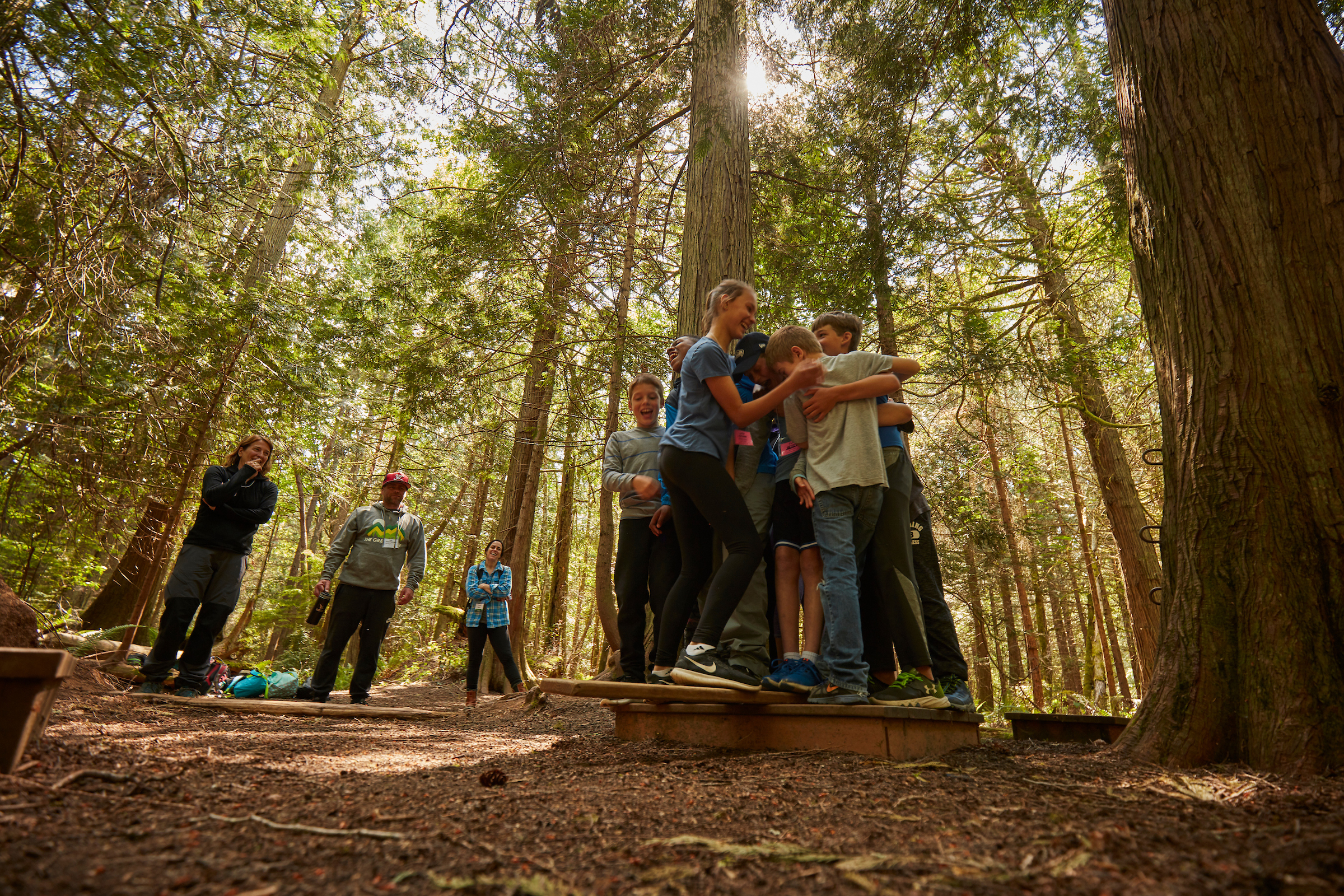
DATA AND IMPACT
- 4051 4th-6th graders came to SOP this year
- With the support of 650 teachers and chaperones
- Of these students, 49% were from schools below 25% FRL; 20% of total students were from schools between 26-49% FRL, and 31% of total students were from above 50% FRL. We record these numbers as part of our commitment to provide equitable access for students across the socio-economic spectrum.
- We provided $269,540 in scholarships to support equitable financial access to SOP
- To help prepare and excite students and families, we provided 66 student and 47 parent orientations
- In partnership with UW, we assessed the life skill development of 300 students across the socio-economic spectrum to evaluate our delivery of services and their growth.
N = number of participants or returned surveys
- Teacher debrief lunch: open dialogue with Lead Teachers (as available) on Wednesdays during 4-day SOP weeks; determines the effectiveness of specific goals towards culturally responsive teaching strategies. N = 67
- Teacher and chaperone surveys: N = 277
- Immediate-post survey: sent to all teachers and chaperones on the Friday after SOP; determines whether SOP objectives were achieved in the field.
- 3-months out survey: sent three months after the SOP experience to all teachers who come in fall and winter quarters; determines “stickiness” of SOP objectives.
When surveyed immediately after SOP, 100% of teachers reported that most or all students met the SOP objectives. But even more compelling is the “stickiness” of the impact on students. From surveys that go out 3-5 months following SOP, teachers report:
- 71% of teachers report positively that students demonstrated an understanding of how nature and humans are connected.
- 78% of teachers report students were able to explain how they can be a steward in their communities.
- 88% of teachers report observing students exhibiting creative and collaborative problem solving.
- 86% of teachers report observing students asking questions inspired by their curiosity.
- 83% of teachers report observing groups respectfully engaging with others who had different opinions or experiences while at IslandWood.
In addition to impacting the students, teachers let us know that we are also impacting how they teach. During SOP, teachers are allowed the time and space to step back and watch as another trained educator facilitates the learning. This brings new understandings for teachers about how their students learn in different contexts. Our teachers have told us that as a result of their participation in SOP, they have added the following skills/subjects into their teaching:
- 56% of teachers report integrating Stewardship Projects
- 65% report integrating Science Investigations
- 67% report integrating Outdoor Learning
- 69% report integrating Pro-environmental Behaviors
“I was able to watch students embrace new roles that I hadn’t seen demonstrated in the classroom. This has inspired me to be more mindful about how I can cross-teach subjects while incorporating the natural world and venturing outside the walls of the classroom. I learned a great deal by watching the instructors and picked up some new teaching techniques. I also learned to step back and resist the immediate temptation to guide students, and instead let them experience the productive struggle.”
– Montlake Teacher
WHAT WE HEARD YOU SAY YOU LOVED
You told us you appreciated our adaptive and flexible instructors who showed awareness of student needs as they differentiated instruction to accommodate various learners. You commented on their inclusivity, allowing different ways of answering, and patience.
You told us that intentionally mixing students prepares them to respectfully interact with others in the world, and it sets them up to collaborate meaningfully. You appreciated the bonding that happened between groups and in the dining hall as students interacted across schools.
You told us that students engaging with and “doing” has benefited their learning in science, problem solving, and communicating. You appreciated the wait time and patience used by instructors to allow students to explore and discover answers.
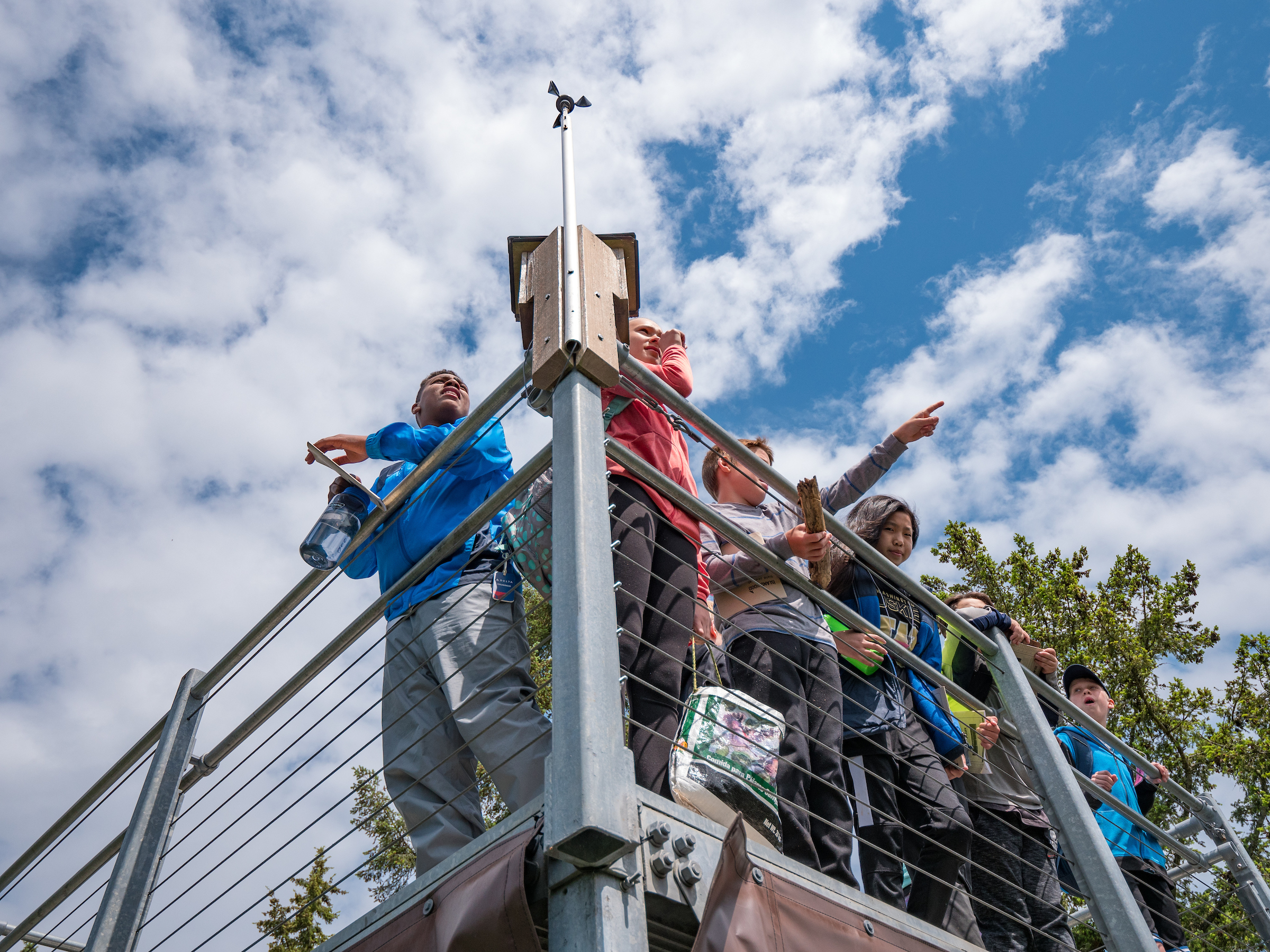
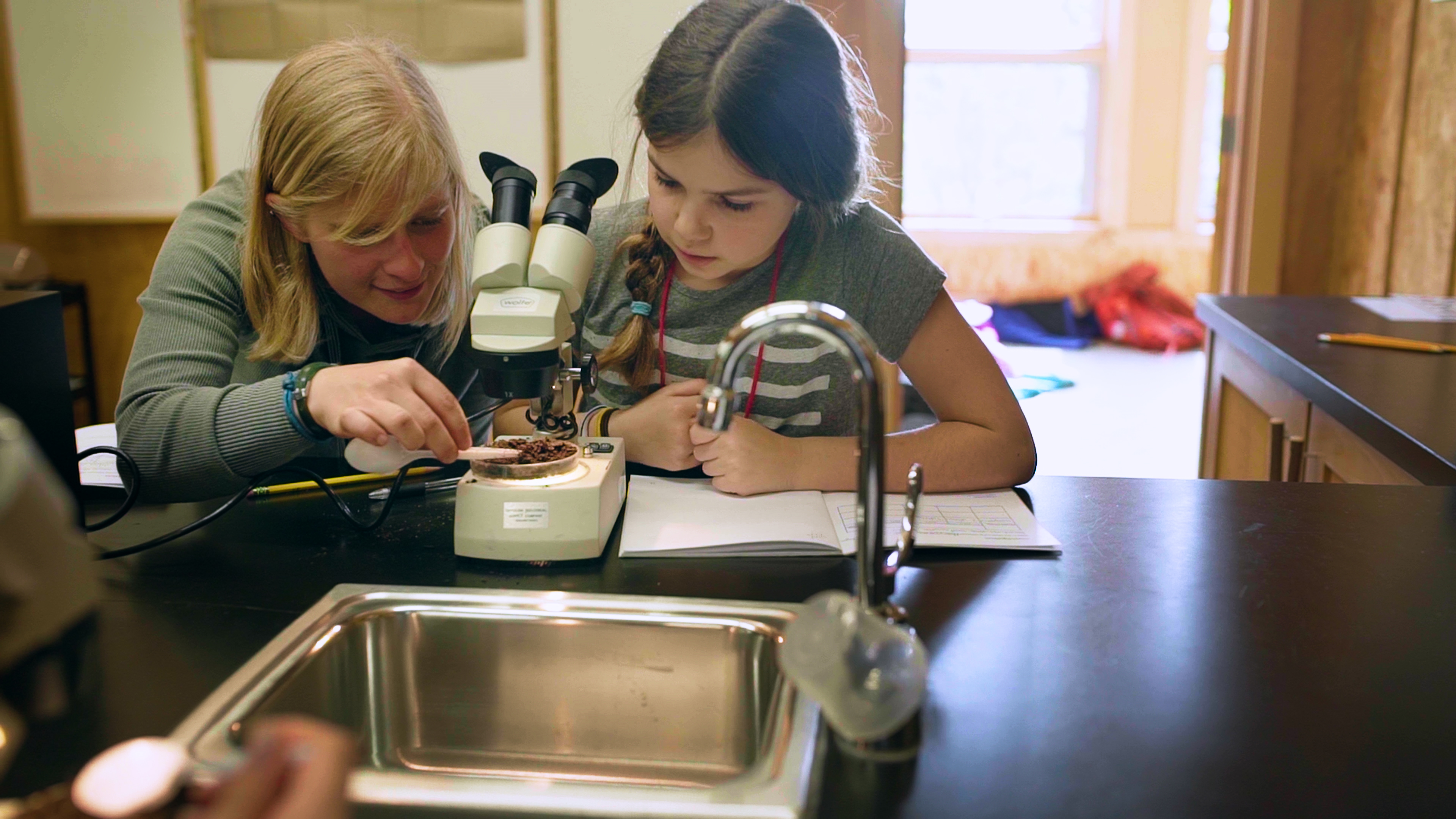
WHERE WE HEARD YOU SAY YOU'D LIKE US TO GROW
You commented that you love the approach to science at IslandWood, and that there is opportunity to take it deeper.
How we’re growing: We have redesigned our curriculum (here). We have now included climate literacy into our understanding of ecosystem. Prior to this year, we focused on teaching students the interdependence within an ecosystem. This year, we will still teach this, but now it will have an extension of understanding how these local interdependencies impact other systems within in the region and globally.
How you can help: Your feedback through this year is key. How are you noticing students talk about the environment, problem solving, ecosystems, and systems in general? Are they making connections to big ideas?
For two years in a row, you have told us that you love the mixing of students in the field groups and dining hall. You asked, do it with more frequency and intention.
How we’re growing: We are working as a team to support our graduate instructors in this process by providing trainings before they start teaching and partway through the year. They are receiving structured support in classes to master teaching together so they can team teach in the field. We are intentionally grouping instructors in the fall so they can plan ahead of time to bring groups together.
How you can help: While in a group that is Engaging Across Boundaries, step in to support the students having meaningful and sometimes difficult conversations. Ask the instructors where you are most needed to support the students during the process. Provide feedback to the team about the process.
The measuring of ort has been popular as a teaching tool for over a decade, with many schools implementing a version of it in their own school.
How we’re growing: This year, we are examining how food waste occurs in a system like a production kitchen and how that is different from the ort report. We will more clearly teach students what ort is, what food waste is, and how it can impact small and large systems.
How you can help: Have conversations at the dining table with students about food waste and ort. Let the Coordinator know if students are confused about topics in the dining hall.
You let us know that you appreciate the support provided to teachers and chaperones at IslandWood through Chaperone videos, orientations, on-site check-ins, opportunities for feedback, and regular communication. You’ve also outlined some areas where we can provide more support in the lodges and dining hall.
How we’re growing: We will provide a list of games and an outline for structured time in the lodge in the evening. We will create classroom stewardship project ideas to share and redesign the dining hall interactions to better support adults at the tables.
How you can help: Let the coordinators know what you would like to see. Where are you feeling a bit overwhelmed or where would you like some extra support? Let us know during teacher debrief on Wednesday when we will specifically ask about this question.
In debrief, teachers have commented on the positive effects of social-emotional learning, cooperative discipline, and culturally responsive science teaching while at IslandWood. At the same time, we have received questions about how we accomplish this and what our point of view is about these topics in education.
How we’re growing: We are crafting short statements to outline explicitly what our view is on discipline, culturally responsive teaching, science education, and social-emotional learning. These statements will be eventually put into the Teacher Manual, on the website, and within our curriculum. These statements won’t be a shift from prior ideals, we will finally be recording them in written words.
How you can help: What other statements can we craft for the teachers, chaperones, and public that would benefit their understanding of our program?
While the family style eating has been a favorite for many guests at IslandWood because students make new connections and friendships, the physical space can be overwhelming to some students due to the high volume.
How we’re growing: We have ordered one pair of noise canceling headphones for use by students. We are also making teachers and adults more aware that there is an alternative space in the private dining room most weeks for students to be able to eat in. In the Private Dining Room, they will still be in the dining hall, can see the other tables, can hear the what is happening, but the volume level is significantly lower.
How you can help: Let us know on the pre-trip if you have a student who may become overstimulated in loud environments. We will plan ahead to ensure the student sits in an idea spot in the dining hall and at Friendship Circle.
Our indoor evening program is a chance to reinforce what students learn during the day with field groups. During this time, students hear stories, sing songs, and help instructors act out skits. You have let us know that sometimes the goals are not always clear during this program.
How we’re growing: As a team, we are revamping this program. We are crafting a detailed yet flexible schedule to help instructors manage the flow of the program and clearly communicate the purpose of the gathering.
How you can help: We will be asking about this program during teacher debrief on Wednesdays, please bring feedback.
STORIES
POEMS AND SCAVENGER HUNTS: SPRING IN THE GARDEN!
Spring weather can be a fickle friend – one moment it's sunshine, and th...
FROM THE GARDEN: Planting with Kids!
We’ve started to plant seeds with School Overnight Program students in t...
HAPPY VALENTINE’S DAY!
Thank you to our supporters, both near and far, for your help in creatin...
IslandWood acknowledges that we live and work on the ancestral land of the Coast Salish people, who have been stewards of this region's land and waters since time immemorial, and who continue to protect these lands and waters for future generations, as promised by the Point Elliott Treaty of 1855, the Treaty of Point No Point of 1855, and the Treaty of Medicine Creek of 1854.
While the majority of our work takes place on Suquamish (suq̀ʷabš) and Duwamish (dxʷdɐwʔabʃ) land, we also conduct programs on the land of the Snohomish (sduhúbʃ), Puyallup (spuyaləpabš), Muckleshoot (buklshuhls), Skokomish (sqoqc’bes), and S’Klallam (nəxʷsƛ̕ay̕əm) peoples.
IslandWood is a registered 501(c)(3) charitable organization. Our tax ID number is 31-1654076.
4450 Blakely Ave. NE, Bainbridge Island, WA 98110 206.855.4300

